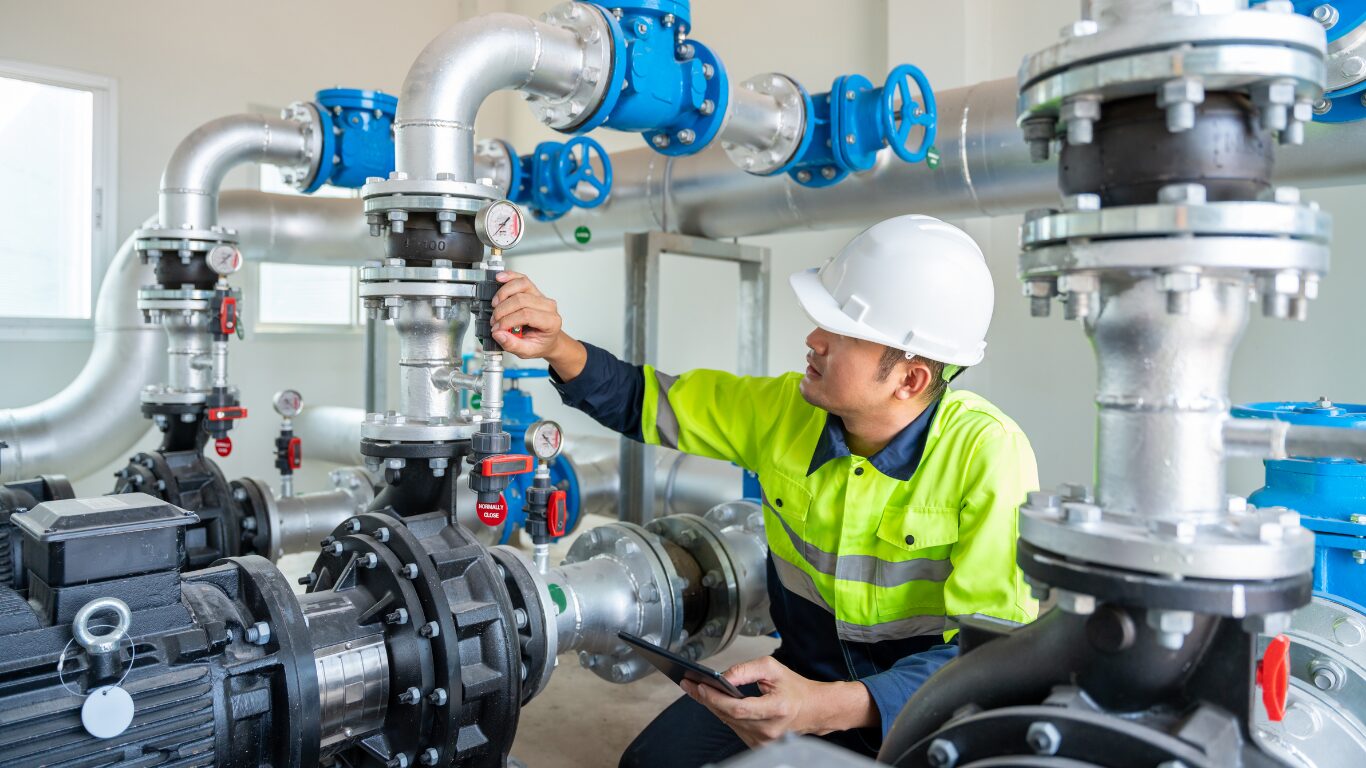How Sustainable Water Treatment Transforms Industry
Aug 23, 2023Across industries, the push for sustainability is reshaping how facilities manage water. Systems that once focused only on meeting discharge limits are now expected to conserve, recycle, and minimize impact. For many plants, water isn’t just a utility anymore, but also a valuable resource that connects directly to operational efficiency and compliance.
That’s where sustainable water treatment comes in. It represents a shift toward smarter, cleaner, and more responsible ways to handle water in industrial and commercial settings.
In this article, we’ll explore how sustainable water treatment transforms industry, the technologies driving it, and practical steps facilities can take to build long-term efficiency and resilience.
Why Sustainability Matters in Water Treatment
Water treatment plays a bigger role in environmental protection than most realize. Every step of the process, starting from intake up to discharge, affects the surrounding ecosystem, energy use, and long-term water availability. Traditional systems, while effective, often rely heavily on chemical treatment and energy-intensive equipment. Over time, these approaches contribute to higher operating costs and greater environmental impact.
The Problem with Conventional Methods
Conventional water treatment systems typically depend on:
- Chemical additives that can create waste or harmful byproducts
- High energy consumption from pumps, aeration, and heating
- Frequent maintenance to manage sludge and residual contaminants
These factors can strain both budgets and local water resources, especially as regulations tighten and costs rise.
The Value of Sustainable Practices
Sustainable water treatment focuses on reducing waste, conserving energy, and improving overall efficiency. By rethinking how water is treated and reused, facilities protect human health, maintain compliance, and support environmental sustainability. This shift not only helps preserve natural systems but also aligns operations with broader sustainability goals shared across industries today.
The Shift Toward Sustainable Water Treatment Systems
Many treatment facilities are rethinking how they approach water management. As sustainability becomes a global priority, the industry is moving away from conventional, energy-heavy operations toward cleaner, smarter, and more resilient systems.
From Conventional to Sustainable
Traditional plants often focused on output, or meeting discharge limits or production demands, with limited regard for long-term efficiency. Today, more operators are prioritizing sustainable water treatment systems that minimize waste, lower carbon emissions, and adapt to changing conditions like drought or water scarcity.
These systems combine energy efficient technologies, improved monitoring tools, and smarter process control. They’re designed to optimize water use without compromising treatment quality.
Technology Driving the Transition
Across the field, we’re seeing greater use of biological treatment systems, natural filtration, and advanced oxidation processes to remove contaminants effectively while consuming less energy. For a deeper look into oxidation’s role in sustainability, see our guide on traditional vs. advanced oxidation impact.
The result is a new generation of wastewater treatment plants that are both efficient and environmentally responsible, setting a higher standard for the industry.
Key Sustainable Water Treatment Technologies
Sustainability in water treatment is driven by innovation. Modern plants are adopting technologies that make processes cleaner, faster, and far more energy efficient. Here are some of the most impactful methods we’re seeing across the industry today.
Membrane Filtration and Reverse Osmosis
Membrane filtration and reverse osmosis have become cornerstones of sustainable water treatment technologies. These advanced membrane technologies remove fine particles and dissolved solids with impressive precision while using less chemical input than older systems. They’re also adaptable. Operators can scale or retrofit existing setups without rebuilding entire plants.
Biological Methods and Constructed Wetlands
Nature offers efficient tools for purification. Biological methods and constructed wetlands rely on microbes and plants to naturally break down contaminants in wastewater. These natural systems mimic the processes found in surface water environments, reducing sludge and energy use while improving overall wastewater quality.
Renewable Energy Integration
More treatment plants are integrating renewable energy sources like solar or wind to power their systems. This approach lowers operational costs and supports sustainability goals. Facilities can even recover biogas from biological treatment systems to generate on-site energy production, reducing dependence on external grids.
Together, these sustainable water treatment technologies are reshaping how facilities view water. Not as waste, but as a resource to be preserved and reused.
Sustainable Water Management Practices
Sustainability doesn’t end at the treatment plant. It extends to how facilities handle water across every stage. Implementing smart sustainable water management practices helps ensure every liter is used responsibly, improving efficiency and long-term reliability.
Optimizing the Water Treatment Process
Modern water treatment systems now focus on:
- Monitoring and control to adjust chemical doses or flow rates in real time
- Recycling and recovery of process water wherever possible
- Reducing discharge by routing treated water back into cooling, cleaning, or irrigation cycles
These steps create a sustainable water cycle that supports operations while minimizing environmental impact.
Sustainable Wastewater Management
Sustainable wastewater management means treating wastewater as a resource, not a liability. Facilities are now using advanced monitoring tools to track wastewater quality and identify opportunities for water reuse within the same system.
To see how these principles work on a facility-wide scale, explore our article on sustainable water management. The goal is simple: reduce waste, lower costs, and make every drop count.
Overcoming Common Challenges
Even with growing awareness, moving toward sustainable water treatment isn’t always straightforward. Many facilities face obstacles tied to aging infrastructure, limited budgets, or unfamiliar technology. Still, progress is possible when teams start with practical, manageable changes.
High Energy Demand and Outdated Systems
Older systems tend to have high energy demand due to inefficient pumps, aeration, or heating components. Upgrading to energy efficient technologies can reduce both costs and environmental impact. Even small retrofits, such as variable-frequency drives or smarter controls, often make a noticeable difference.
Emerging Contaminants
Pollutants like pharmaceuticals and microplastics are difficult to remove using conventional methods. Facilities can improve removal efficiency through advanced oxidation processes and natural filtration. If you’d like to see how these technologies integrate into industrial systems, check out our guide on industrial cooling water treatment best practices.
Existing System Limitations
Older treatment systems may not support new technologies immediately. Teams can start by monitoring wastewater quality, upgrading sensors, and using biological aids to improve treatment consistency. Step-by-step adjustments often lead to long-term improvements without requiring full system replacements.
How R2J Supports Sustainable Water Treatment
Reaching true sustainability requires more than advanced technology. It takes strategy, consistency, and the right expertise behind every system. At R2J, we’ve seen how tailored solutions make the biggest impact. Every facility is unique, and so are its water challenges.
Our team helps organizations transition toward sustainable water treatment solutions through careful system evaluations, optimized treatment technologies, and ongoing performance monitoring. We focus on improving water quality, reducing energy consumption, and integrating practices that align with each site’s sustainability goals.
For some facilities, this means upgrading treatment systems with smarter controls or switching to more efficient chemical feed programs. For others, it’s about designing entirely new processes built around water reuse and energy recovery.
Looking to make your operation more sustainable? Let’s find the right balance between efficiency and responsibility. Contact us to discuss how R2J can help strengthen your environmental performance and create long-term value through sustainable water treatment.
Frequently Asked Questions (FAQs)
What is sustainable wastewater treatment?
Sustainable wastewater treatment focuses on reducing waste and energy use while maintaining high treatment performance. It relies on biological treatment systems, natural filtration, and energy efficient technologies to process wastewater with fewer chemical additives and less sludge generation.
How do advanced technologies improve water quality?
Modern treatment technologies such as membrane filtration and advanced oxidation processes enhance drinking water quality and overall system reliability. These methods target emerging contaminants that older systems often miss, providing safer and cleaner water for communities and industries.
Why is energy efficiency important in water treatment plants?
Energy makes up a large part of operational costs in treatment plants. By using energy efficient pumps, blowers, and monitoring systems, facilities reduce their carbon footprint while improving reliability and cost control.
Can biological treatment systems replace conventional methods?
In many cases, yes. Biological processes and constructed wetlands can handle large volumes of industrial wastewater with lower energy consumption than traditional mechanical or chemical treatment. They’re especially effective for organic or nutrient-rich waste streams.
How does sustainable water management protect local water resources?
Sustainable water management practices ensure that treated wastewater is safely reused or released without harming surface water or aquifers. This approach strengthens water security, supports sustainable development goals, and preserves access to clean water for future generations.


